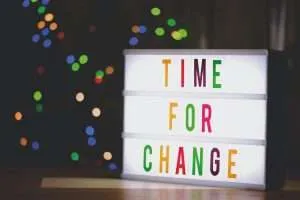Editorial Note:
This article on the importance of sociology is being published on behalf of Applied Worldwide’s student essay competition. Students were prompted to respond to the question, “Why is sociology important?” We have awarded 16 finalists from all over the world, and we published these essays over the course of a few weeks.
This essay was written by Perfect Ologunde from Bowen University in Nigeria. This essay received a second place award. We had a really great turnout and would like to thank everyone who submitted an essay. We received a wide variety of creative interpretations and responses, so browse our essay directory!
Perfect Ologunde – Importance of Sociology
My final year at high school was an indecisive year for me. It was expected that all final year students had decided what course to study at university but there I was, torn across many career options. I loved Economics and Marketing. I loved the idea of studying how human wants are insatiable, knowing and understanding the dynamics and forces of production, distribution and consumption of goods and services.
I craved for the life of a working class woman who starts her daily activities at work by 8am with a computer at her desk and a rolling chair where she would sit all day and get back home at 6pm. I was also excellent at Literature. I loved how relatable it was, the plot twists at each chapter, the different personalities of each character, the figures of speech that proved how human beings are complex and the beauty in each poem I read.
When I Encountered Sociology
I heard the term “sociology” from my dad one day. He told me the little he knew about it and asked me to read up on it. From my findings, I deduced that sociology is the study of human social relationships and interaction in the society. This definition was somewhat interesting to me. It sounded more like literature to me and since I loved literature, I was sure I was going to enjoy sociology. However, this wasn’t all I wanted.
I wanted to work in a corporate world too so I furthered my research and surfed the internet on the branches of sociology. There I found branches like political sociology, medical sociology, industrial sociology and so much more. I read up on industrial sociology and it sounded like everything I wanted so I filled out sociology on my admission form.
The Importance of Sociology
Entering school, the preconceived idea I had about sociology as a whole was that it aims at studying the society and I believed there wasn’t so much to the society. I used to wonder why students from nursing, mass communication, law, economics and so many other disciplines had to offer sociology until I discovered that once there are people in a place, a sociologist can work there. Sociology cuts across a whole lot of disciplines. Since individuals have to function in different industries, they can’t avoid interaction, conflict and competition. This is where sociology comes in.
My perspective about sociology suddenly started to change. There are a whole lot of things that sociology conveys. It has a more amazing and broader view than it depicts. Sociology started to give me new insight to things. It helped me understand reality beyond what I previously knew. A passion immediately developed in me to go beyond theoretical sociology to its daily practical application. I started to study my friends and all their personality types and I could understand them better. Sociology reinforces me, makes me see and understand things from an entirely different point of view.
What I have Learned about Sociology
In the broadest sense, sociology is the study of social group on the basis of social interaction (Georg Simmel, 1890). Man can never be an individual in isolation so sociology studies man as a member of the society. Social interaction is a basis by which individuals survive and by this, their social life is formed. Social interaction could be in form of exchange, competition, cooperation, conflict and coercion through verbal and non verbal means.
We as individuals, learn means of interaction from the society through the family, peer group and other social institutions. Every individual is born into a family which belongs to a larger social grouping called the society and this society shapes the lives of their members.
The perspective in which sociologist aim to understand individuals in the society is different from the way a lay man sees it. Sociological Perspective according to Peter Berger (1963) is described as seeing the general in the particular. This is how sociologists are able to examine and understand how the society influences individuals and how in turn, individuals influence the society.
Sociology and Social Behavior
Sociology also aims to study people and their social behavior. It broadens its study to several areas such as crime and deviance, corruption, policing, pressure groups, gender, feminism, beliefs systems, socialization, social institutions, etc. It attempts to explain how and why individuals belonging to this social institution, acquire these behaviors through interaction with the society in terms of cultural beliefs, perspectives, family background, social expectations amidst others.
With this broad understanding sociology has provided about social life and human interaction, sociology has further explained that as human beings, we are predisposed to conflicts. There are conflicts in ideas, values, perspectives and so much more. Sociology allows individuals to develop a form of consciousness that there are social factors that are responsible for our individual experiences.
This understanding creates a deeper insight towards understanding why there are social problems and how a process can be developed to solve such problems. For example, when a lay man is asked for the cause of unemployment, he/she comes up with answers such as industrialization and then proffers probable solutions.
Sociologists on the other hand, examine the term, recognize in-depth causes, gather samples from a population, goes through a series of interviews and then comes up with solutions like the increase in the enrollment of vocational skill, thereby making tertiary education optional.
Sociology and Social Problems
A social problem needs to be broadly defined and understood before a solution can be proffered. Through its ability to enable us to think beyond the obvious and create a sense of curiosity, sociology has helped us to understand social problems which would in turn lead to a potential aid for finding solutions. Someone once said, “If we can really understand the problem, the answer will come out of it, because the answer is not separate from the problem.”
In my three years of being a student of Sociology, I have come to realize that sociology matters in mans everyday life. Man cannot survive without being socialized so he needs the society, social influences and social interaction to survive as a member of the society. Sociology has helped in my daily life activities, to see a new and inner perspective to things. Because of my little knowledge on sociology, I have been able to scale through different social problems, understand divergent ways of humans reasoning and discover coping strategies that can be applied in different social situations.
Final Thoughts on the Importance of Sociology
Truthfully, it has made living easier. Whenever I am to judge a particular situation, I no longer judge it merely on the basis of what it appears to be. I now try to put on my sociological lenses to observe the normal and also recognize the other variables that are present but would normally be ignored, before I try to make sense of the situation.
In conclusion, sociology is very important for studying and understanding individuals’ daily activities, functionality in various social institutions and solving problems pertaining to this various institutions. Though the discipline is taken for granted, the importance of this discipline cannot be overemphasized as it cuts across various spheres, institutions and our day to day life.








